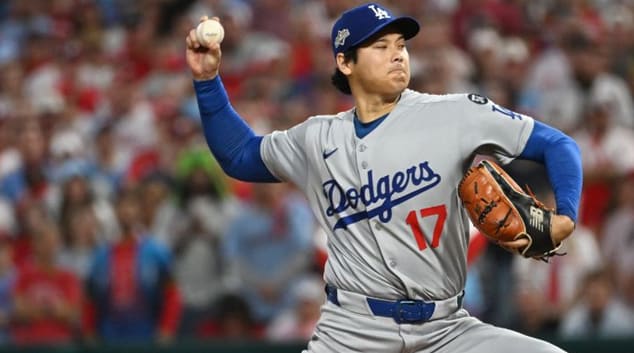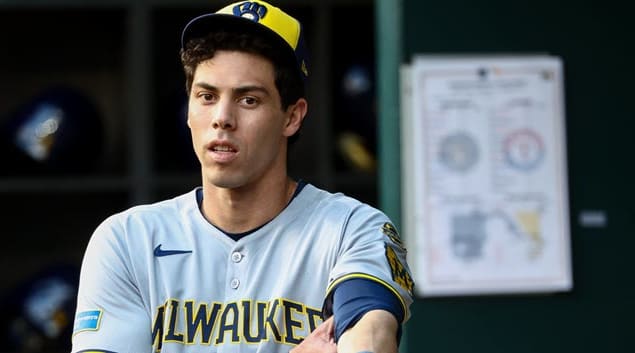Well, that was fun. What a frenzy, huh? To be honest, I'm still catching up but owe you guys a column, so I thought I'd share some more trade thoughts -- more philosophy than anything.
Picking up the phone and calling your league mate is a popular suggestion to facilitate trade negotiations. Have you noticed the majority of those with such advice are usually older and grew up well before the cell phone era? I really think this is a generational thing. I come from a time where you had to secure a female's number and then think of something interesting to say if she gave you her actual digits.
I'm not going to pretend to know how the current generation goes about courting the opposite (or otherwise) sex, but I do know many younger fantasy enthusiasts I've talked to about trading say they are uncomfortable talking on the phone since they really have not grown up using the phone to communicate.
My first reaction may be like yours: Huh? Yeah right.
It was then explained that many younger folks aren't versed in telephone conversation. As such, they feel pressured when talking to someone trying to convince them to take a deal. I explained they should do their best to keep the communication more conversational, but that brings us back to their youth and how they didn't grow up chatting on the phone. As simple as it seems to older generations, I can understand how talking one-on-one can be uneasy.
Well, that was fun. What a frenzy, huh? To be honest, I'm still catching up but owe you guys a column, so I thought I'd share some more trade thoughts -- more philosophy than anything.
Picking up the phone and calling your league mate is a popular suggestion to facilitate trade negotiations. Have you noticed the majority of those with such advice are usually older and grew up well before the cell phone era? I really think this is a generational thing. I come from a time where you had to secure a female's number and then think of something interesting to say if she gave you her actual digits.
I'm not going to pretend to know how the current generation goes about courting the opposite (or otherwise) sex, but I do know many younger fantasy enthusiasts I've talked to about trading say they are uncomfortable talking on the phone since they really have not grown up using the phone to communicate.
My first reaction may be like yours: Huh? Yeah right.
It was then explained that many younger folks aren't versed in telephone conversation. As such, they feel pressured when talking to someone trying to convince them to take a deal. I explained they should do their best to keep the communication more conversational, but that brings us back to their youth and how they didn't grow up chatting on the phone. As simple as it seems to older generations, I can understand how talking one-on-one can be uneasy.
My personal philosophy is to be flexible in trade talks. If my dance partner prefers texting, I'll text. If they want to Skype, I'll dig up my password. Facilitating conversation facilitates negotiation. I'll do whatever you want me to do, with one exception.
Most commissioner services have an on-site mechanism by which to propose/accept/reject/counter proposals. A personal pet peeve is using the tool to negotiate a deal. Sure, many sites have a place for comments, but in my not-so-humble opinion, a deal should be consummated before being proposed on site.
Perhaps it's irrational, but an offer conveyed by the site mechanism implies it is worthy of acceptance, but far too many times it's essentially the opening salvo. I don't mind being tabled something less than someone's best offer, but if it's done on-site, my impression is the other person feels I should accept it.
My standard action is to reject the offer while politely requesting we negotiate offline, then we can enter it into the system. I'll suggest different ways to contact me and it usually works. However, sometimes the response is another on-site proposal. If it's something I want to consider, I'll usually reply via email, which almost always results in an offline negotiation. In the rare instances it fails, I'll reluctantly use the comments box to negotiate.
Not much bothers me in general, but there is another element of trading which can put me on tilt. Winning a keeper league is supposed to be hard. And by hard, I mean you should be forced to relinquish significant future assets. That is, bringing home a keeper league title should entail acquiring expiring or cost-prohibitive contracts for cheap, controllable assets, highly ranked prospects or draft picks to be used for top prospects.
Maybe it's just my personal experience, but I've seen fewer proverbial dump deals this season that in previous campaigns. For what it's worth, I'm specifically referring to keeper leagues and not dynasty formats. Granted, there isn't a textbook definition, but I consider a keeper league to have a decent level of player turnover, whereas a dynasty league has minimal churn, usually only with fringe players.
I'm not sure why fantasy leaguers are more hesitant to deal prospects. Perhaps it has to do with many keeper leagues taking the pandemic season off and fantasy managers growing even more attached to their promising youngsters. Maybe fantasy leagues are mimicking MLB as the market has changed in the majors, with very few top prospects changing organizations (prior to this week, anyway). In fact, many were shocked the Blue Jays parted with Simeon Woods Richardson and Austin Martin along with the Mets dealing Pete Crow-Armstrong.
As alluded to earlier, I'm old school, and the way I was weaned in keeper leagues is that the top teams need to sacrifice a meaningful chunk of their future to compete in the present. Those bragging about winning consecutive titles in keeper leagues are lucky they play with competitors unwilling to force them to give up quality keepers.
Before burying my head back in my spreadsheets, I'd like to address one more point that came up in a recent Tout Wars Roundtable on trading. Many suggested you should explain why a deal is beneficial for the other party, while a handful contended having things explained is insulting and you should just make the offer. I see both sides, though admit a frown upon being fansplained a deal. Hey, I just coined a new term: fansplaining is when someone tells you why a deal is good for your team.
Anyway, I'll roll my eyes and do my own analysis. If I agree with the fansplaining, I'll gently nod approvingly and take solace that I'm dealing with someone on the up and up. If I find the explanation silly, I know someone is trying to put one over on me.
My general approach to selling the deal is with something like, "It looks like you could use some help in steals and have a huge lead in saves so I think we have a match." I don't go into any more detail. If someone feels that is disrespectful, I don't know what to say.
Speaking of which, I'm running out of things to say and am only halfway through adjusting my pitching grids after the deadline frenzy. I am done with hitting – yay! We'll get back to crunching numbers next week.























